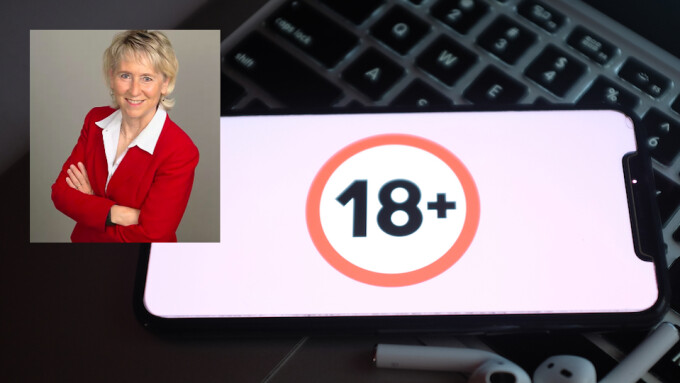SALT LAKE CITY — A proposal that would require smartphones and computers to have pre-installed porn-blocking software, and to have it activated as the default option when sold to Utahns, was quashed yesterday during a committee hearing at the state's Business and Labor Interim Committee.
According to a report by Deseret News, Utah State Representative Susan Pulsipher (R-South Jordan) said “the goal of her effort was to create another wall of defense to help protect children from ‘the damaging impact of pornography’ and ‘empower parents and legal guardians to limit a minor’s exposure to such online harmful material.'"
Pulsipher touted her proposal — which would greatly benefit the for-profit, often religiously motivated businesses that claim to provide porn blocking software — as a better way to “protect minors” than the usual flurry of anti-porn measures floated by Utah’s politicians.
Several members of the Utah Business and Labor Interim Committee, however, noted that “it would be extremely difficult to identify which entity in the consumer electronics supply chain should be held liable for ensuring that software was activated,” the Deseret News reported.
A Vaguely Worded Draft
Pulsipher's vaguely worded draft, according to Senator Curt Bramble (R-Provo), “failed to identify whether the responsible party was the manufacturer, the company that distributed the product or the store or reseller that sold the product to the consumer.”
Pulsipher acknowledged a clarification was necessary.
Other lawmakers questioned the constitutionality of forcing manufacturers to do something that was not their responsibility.
Senate Majority Whip Dan Hemmert (R-Orem) put an end to this latest censorship attempt by Utah authorities by stating that he thinks the market is already attempting to provide content filtering solutions.
“Maybe it’s just bad timing, but I’ve had enough 'nanny state' in my life this past year and I don’t need more, and we already have restrictions, limitations on the distribution of pornography,” Hemmert told the committee.
In 2016, Utah became the first state to adopt a resolution endorsing a "public health crisis" around porn. Over 15 other state legislatures have since adopted similar copycat measures, with language provided by religiously inspired lobbies and copied from state to state. These bills are usually sponsored by religious legislators, often fundamentalist evangelicals, with various appeals to War On Porn propaganda scares around "sex trafficking" and the debunked notion of "porn addiction."
Main Image: Utah State Representative Susan Pulsipher (R-South Jordan). Photo: Utah House of Representatives.








